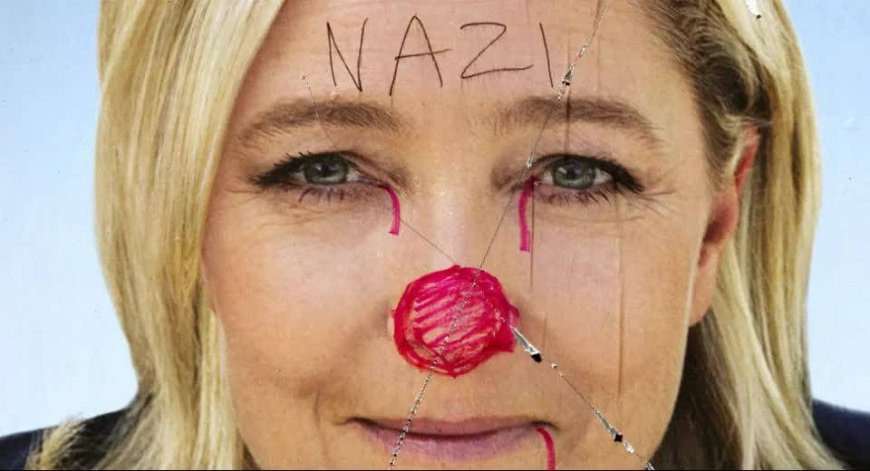A Nation in Crisis: France’s Descent into Far-Right Extremism

In the aftermath of the recent European Parliament elections, France finds itself teetering on the brink of an abyss. President Emmanuel Macron, confronted with a humiliating defeat, resorted to the drastic measure of dissolving parliament and calling for premature national elections—a desperate gamble that underscores the fragility of his political standing and the collapsing state of French democracy.
The results of these expedited parliamentary elections paint a very grim picture. Marine Le Pen’s "National Rally" has emerged with a formidable 34% of the vote, a testament to the alarming shift towards far-right extremism. The leftist coalition secured 24%, while Macron’s beleaguered "Renaissance" party garnered a paltry 16%. With no party achieving a majority, the nation now braces for a decisive second round next week—a critical juncture that could irrevocably alter France’s political landscape and societal cohesion.
This electoral outcome starkly reveals a profound metamorphosis within French society, as the far-right’s resurgence signifies a nation increasingly polarized and susceptible to extremist ideologies. The immediate, widespread protests by those opposed to the extreme right highlight a pervasive dread of Le Pen’s potential ascendancy. The left and center-right opposition clings to hope for the second round, pledging to thwart the far right through strategic alliances, a tactic that has historically mitigated their power in French elections.
Traditionally, second-round elections in France see the far right falter as centrist and leftist parties unite against them. Yet, this time, the political dynamics appear more conducive to a right-wing triumph. Should the far right secure additional parliamentary seats, their influence within the government would significantly expand, potentially steering France toward policies that further fracture its social fabric and destabilize its role on the international stage.
The far right’s strategy of exploiting divisive social and cultural issues—immigration, security, and national identity—has proven disturbingly effective. By amplifying fears and perpetuating narratives of external and internal threats, they have deepened societal rifts and eroded trust in established institutions. Their relentless critique of political elites and the European Union has fueled public disillusionment, driving support for radical, anti-establishment movements. This calculated erosion of social cohesion and national unity and the intensification of political polarization are central to their quest for power.
Macron’s administration, with its cautious policies aligned with European Union directives, inadvertently paved the way for the far right’s ascent. By attributing France’s myriad problems to immigration, the Ukraine conflict, and domestic inefficiencies, the far right has successfully constructed a narrative that resonates with a disaffected electorate, furthering their appeal.
As France approaches the second round of elections, the prognosis is bleak. Although an outright far-right victory may not be imminent, their proximity to substantial parliamentary influence is deeply concerning. Macron’s diminishing authority undermines his ability to govern effectively, posing significant challenges to France’s position within Europe and the global community. This internal instability threatens to be both economically and diplomatically costly.
The specter of a far-right resurgence in France is a stark warning to the European Union. The rise of a right-wing alliance across Europe threatens the very foundation of the EU, potentially leading to its disintegration and consequent chaos. This election transcends national boundaries; it is a harbinger of potential upheaval across the continent.
In conclusion, France stands on the brink of a precipice. The ascendancy of the far right and the deepening polarization within society reflect profound, underlying fractures that jeopardize the nation’s future. The forthcoming election is not merely a political contest; it is a battle for the very soul of France. The outcome will determine whether France can navigate these perilous waters and emerge with its democratic principles intact, or whether it will succumb to the forces of extremism and division, altering the trajectory of its history and that of Europe at large.













































